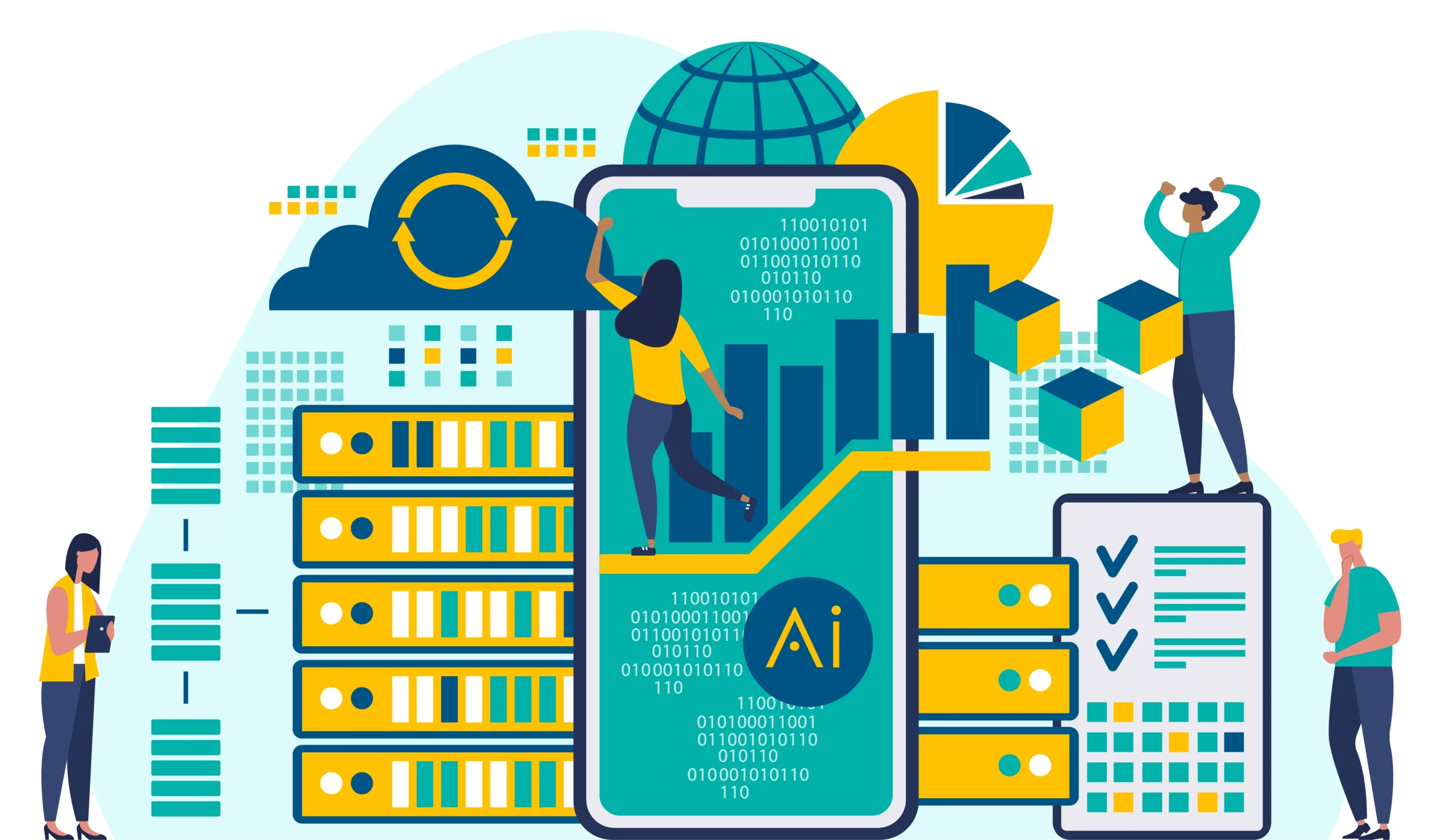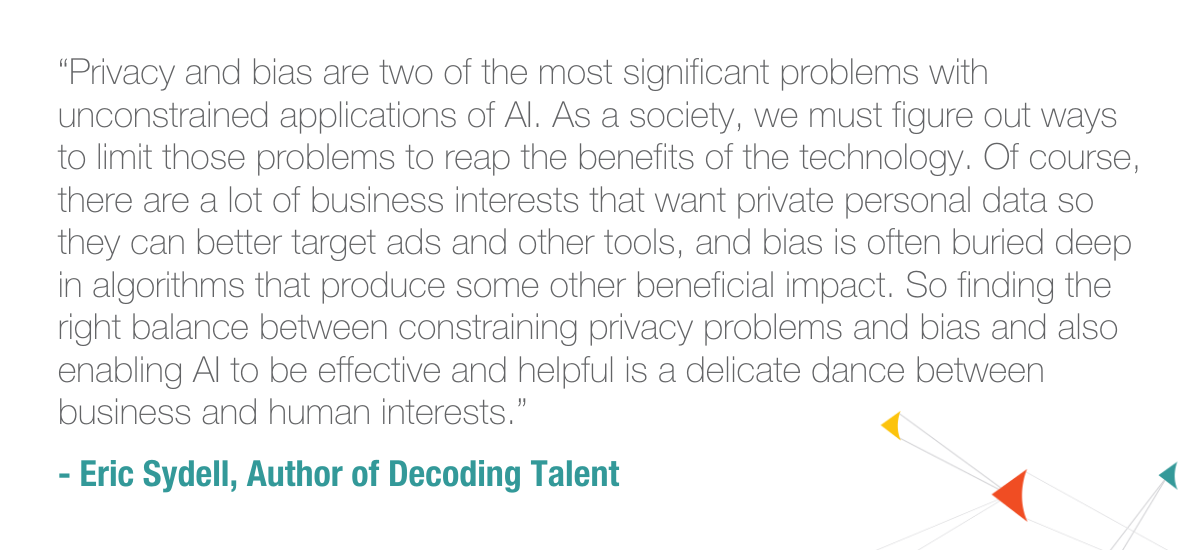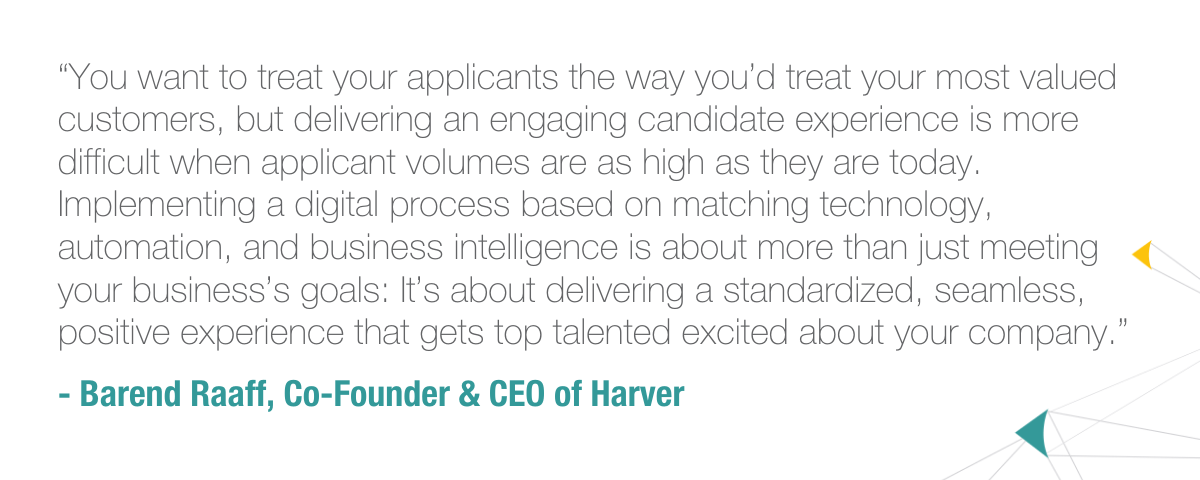The Big Impacts of Leveraging AI & Machine Learning in Recruitment

Are you feeling overwhelmed by the ever-growing challenge of recruiting top talent? Are manual processes leaving you and your Human Resources team bogged down with tedious administrative tasks? If so, it’s time to explore how AI and Machine Learning can be leveraged to expedite, simplify, and enhance your recruitment efforts.
In this blog post, we’ll dive into what AI is bringing to the world of HR—from automating manual processes such as interview scheduling and maintaining candidate engagement to providing more efficient background checks. We’ll also discuss how using predictive insights powered by Machine Learning can help deliver a quicker personalized experience while meeting regulatory compliance standards. The impact of these technologies on recruitment is immense — if implemented correctly, they could save HR leaders countless hours and dollars spent trying to fill open roles with quality hires!
Why Leverage AI in Your Recruitment Efforts?
Recruiting top talent is challenging for any business. The process can be time-consuming, expensive, and subjective. However, new technologies are emerging that can revolutionize how organizations approach recruitment. Artificial intelligence (AI) and Machine Learning (ML) are being increasingly adopted for recruitment efforts due to their powerful capabilities to optimize Talent Acquisition and hiring workflows.
AI and ML technologies have the potential to dramatically improve recruitment results by automating arduous tasks, predicting outcomes, and analyzing data. They can help recruiters find better matches between job seekers and employers, expedite the search for top-quality candidates, and save time and resources throughout the recruitment process.
Ease of Automation
AI and Machine Learning play a major role in reshaping the recruitment process and eliminating manual activities, making finding the right people for the job easier. One of the most time-consuming parts of recruitment is screening resumes. With many applications coming in, reviewing and identifying the right candidates can be challenging.
AI can streamline recruitment by automatically screening resumes to identify suitable candidates, scheduling interviews based on availability, managing applicant tracking systems (ATS), and even creating personalized emails for applicants. It can also help recruiters by suggesting keyword searches from job postings and providing insights into the talent pool of potential candidates.
How Does AI Impact Recruitment?
- AI and Machine Learning are transforming the recruitment process by eliminating manual activities.
- Screening resumes is a time-consuming part of recruitment, but AI can automatically screen resumes to identify suitable candidates.
- Recruitment AI can also schedule interviews, manage applicant tracking systems, and create personalized emails for applicants.
- The technology provides insights into the talent pool of potential candidates, helping recruiters find suitable candidates faster.
- AI can also reduce unconscious bias in the recruitment process by focusing on relevant skills instead of personal backgrounds or gender.
Furthermore, AI technology can learn from previous successful hires and use that data to inform future recruitment decisions. This means that hiring teams can target more qualified candidates faster than ever, leading to increased efficiency and improved hiring success rates.
AI is also helping to reduce unconscious bias in the recruitment process by focusing solely on relevant skills instead of personal backgrounds or identity. As a result, organizations can now ensure they hire the best people in their workforce regardless of preconceived notions or biases.
Bias-Free Recruitment
Recruiting the best talent for your business is crucial to succeed in today’s competitive market. However, traditional hiring methods may unconsciously create bias in the recruitment process, which can have a negative impact on diversity and inclusivity in your organization. This is where AI and ML can help.
Studies have shown that certain words and phrases in job descriptions may discourage qualified candidates from applying if they see them as gender-biased or culturally specific. Therefore, AI-powered tools can evaluate job descriptions and recommend gender-neutral language to recruiters, ensuring everyone has an equal opportunity to succeed. This simple change can have a significant impact on diversity in your workforce.
Fairness comes from an unbiased selection process with equal time and attention given to every candidate. That may seem impossible with so many candidates now on the market, but all you need is the infrastructure to support a data-driven, digital-first hiring process.
Furthermore, AI and ML can eliminate unconscious bias in the resume screening process. Hiring managers’ unconscious biases can often influence their decisions, leading to candidates’ resumes being ignored simply because of their gender, ethnicity, or socio-economic background. Using AI, resumes can be screened online by algorithms programmed to identify qualifications, skills, and experience to ensure that each candidate is evaluated fairly and objectively. This reduces bias in the recruitment process and improves your organization’s ability to recruit the best candidates from a wider pool of talent. By incorporating AI and ML, businesses can create an environment that values diverse backgrounds and experiences, leading to a more innovative and successful future.
Powering Predictive Analytics
The utilization of predictive analytics has increased by almost half in the past three years, as indicated in the latest survey by SkyQuest Technology in 2022. Leaders in the business industry who implement workforce analytics have reported improved comprehension of their talent requirements compared to those who don’t. Furthermore, they express greater satisfaction with their HR operations. Unfortunately, the survey unveils that 42% of companies are not leveraging workforce analytics, leading to overlooking potential opportunities and the persistence of faulty assumptions.
A significant advantage of AI and ML is that they can predict outcomes and detect patterns in large datasets. The technology can analyze job descriptions, resume data, social profiles, and other characteristics to determine which candidates are most likely to succeed in a specific role. This can also help recruiters to identify which job postings will generate the most interest and which channels they should use to target specific demographics. This approach also provides a more unbiased assessment of each candidate because it eliminates the chance of a biased or subjective decision-making process.
Another advantage of predictive analysis in recruitment is the ability to anticipate future employee performance. By analyzing data on past hires and patterns of success, predictive analysis can predict which applicants have the potential to succeed in specific roles. This data can inform recruiting decisions and help to ensure that new hires are a good fit for the company culture, mission, and goals.
Predictive analysis also helps companies to streamline their recruitment process, ultimately saving time and money by reducing the need for lengthy recruitment processes and multiple rounds of interviews. Employers can rest easy knowing that they are selecting the best candidates for the job promptly and efficiently.
Around 83% of recruiters face low people-analytics capabilities. Predictive recruitment data analysis, which includes information and predictive analysis, assists businesses in acquiring employees more rapidly. There are several advantages of using recruiting analytics over conventional hiring.
- It offers unbiased visibility into the efficacy and worth of your hiring efforts.
- It facilitates the tracking of highly skilled candidates and the active development of potential recruits.
- It enables you to build a sizable talent pool or a permanent database of every applicant or employee you can regularly refer.
- It opens the door for process improvement and learning. It makes it possible for proactive recruiting to lead to better and quicker employment decisions.
- It lets you foresee which prospects will perform well and which could make poor recruits.
Enhanced Candidate Experience
According to research by Forbes, 84% of business leaders believe that artificial intelligence (AI) will be the best way for businesses to acquire talent going forward. This technology can help recruiters schedule interviews, follow up with candidates, and provide status updates, reducing the time candidates wait for updates and allowing recruiters to focus on building long-term relationships with candidates. AI can improve the candidate experience by actually humanizing the experience.
How Can AI Actually Humanize the Candidate Experience?
- AI can automate repetitive tasks in recruiting and increase time-to-hire, which is crucial because good job seekers are off the job market within ten days.
- AI can keep qualified candidates engaged by offering constant contact through chatbots and helping recruiters foster relationships even with passive candidates.
- Improving communication with personalized messages sent at different stages of the recruiting process can help recruiters have more time to connect with candidates on essential issues.
- Utilizing data can help recruiting teams and hiring managers make better decisions throughout the recruitment process and determine where to improve a negative candidate experience.
- Offering feedback to candidates can help foster great relationships, and using automation tools and AI software can free up recruiters’ time to dedicate to helping candidates and providing detailed feedback.
- AI can improve the onboarding process by using technology to help with paperwork, creating training modules, and interactive chatbots and digital assistants to humanize the process.
- AI can promote diversity by reducing unconscious biases hindering recruiting efforts and screening candidates based on qualifications rather than gender, appearance, or education history.
Artificial intelligence (AI) is revolutionizing the world of recruitment by providing a more objective approach to candidate selection. With AI and ML, recruiters can improve their hiring process by automating tedious tasks, providing data-driven insights, and ensuring an excellent candidate experience. These technologies can streamline the sourcing, screening, interviewing, and hiring process. As a result, companies can reduce recruitment costs, save time, and achieve better quality hires.
AI and Machine Learning technologies are also valuable weapons against human judgment biases in recruiting efforts. Moreover, data collected from these technologies can help identify potential problems in past hiring patterns, like the need for more diversity or well-rounded candidates.
Our tech-driven world requires recruiters to have the most comprehensive tools to do the job. Embracing AI and Machine Learning can assist recruiters in making informed decisions – enabling a smoother recruitment process for employers and job seekers. Don’t wait; embrace the advancements to create a better future for yourself, your team’s recruiting efforts, and your company! Download the ebook The Best Hiring Strategies for 2023 today to learn more about the most-cutting edge hiring techniques to date.


